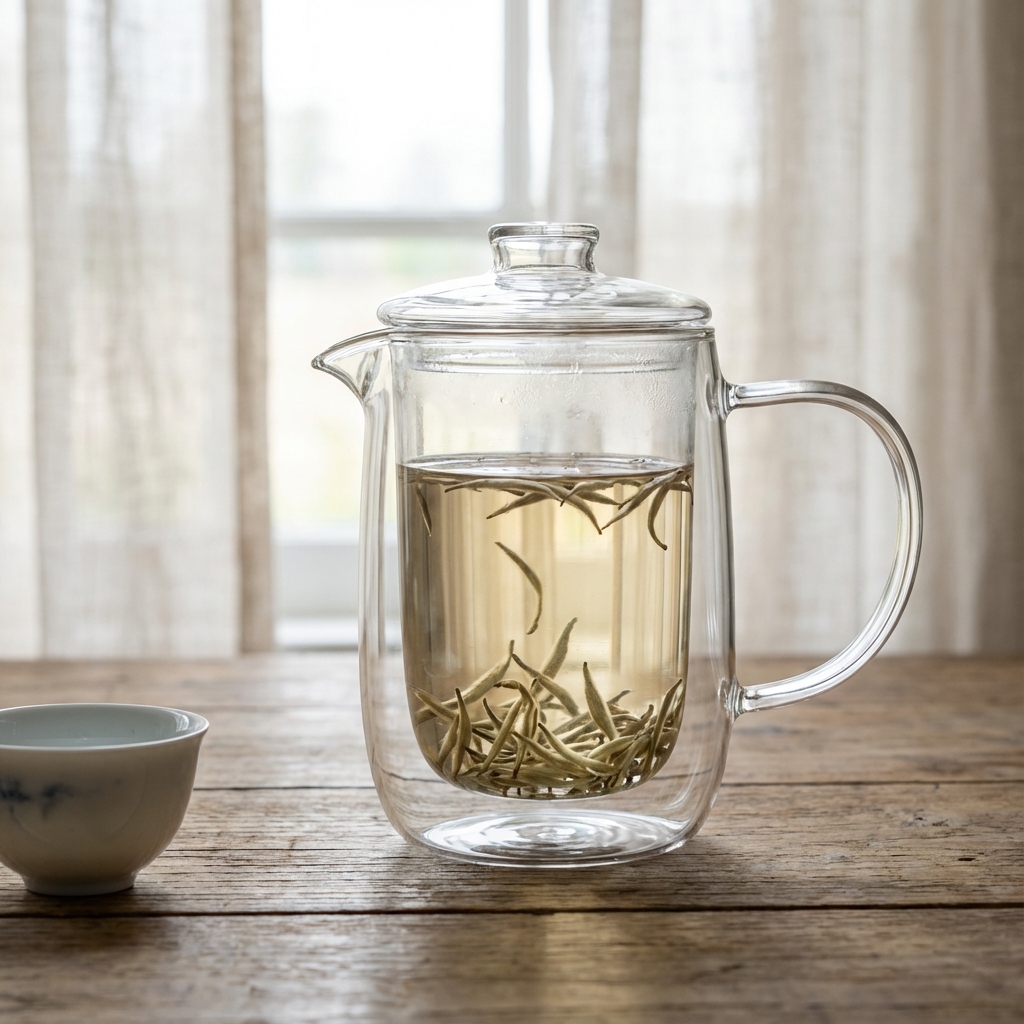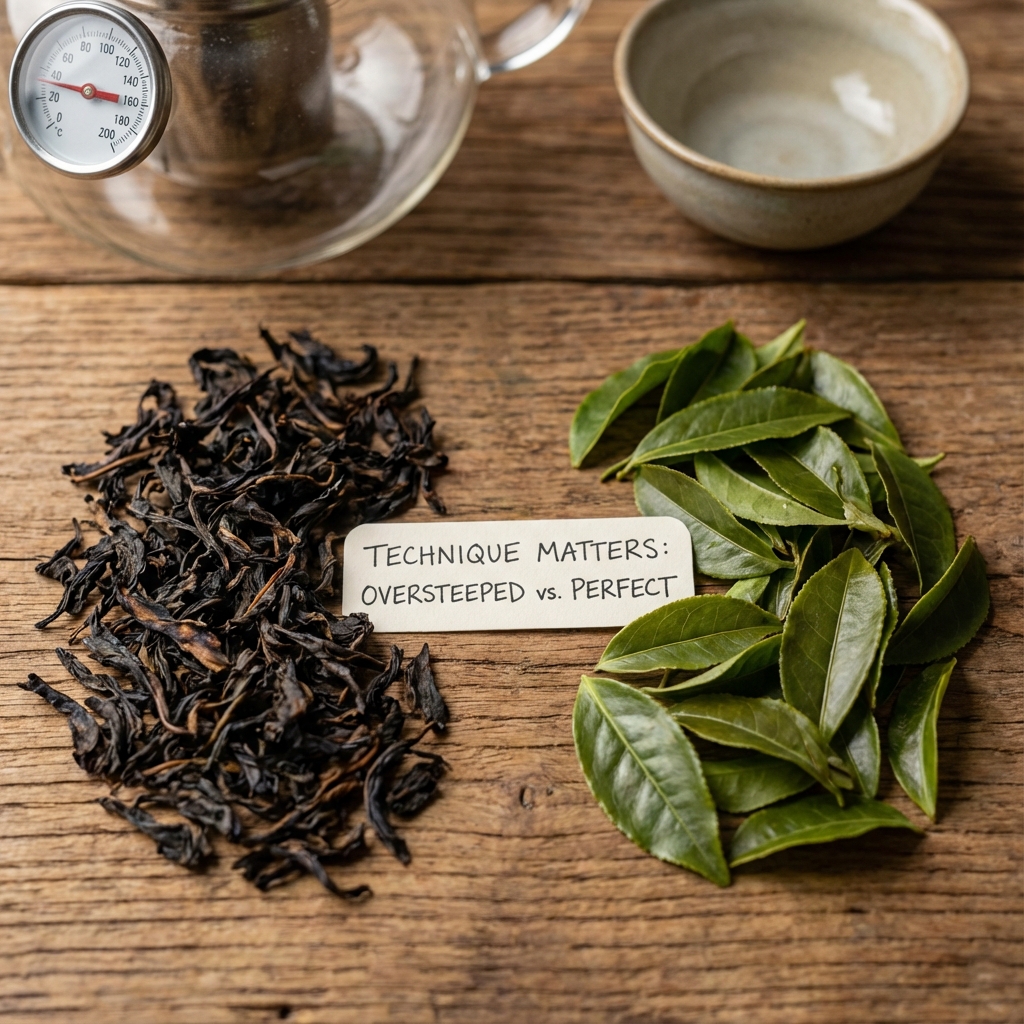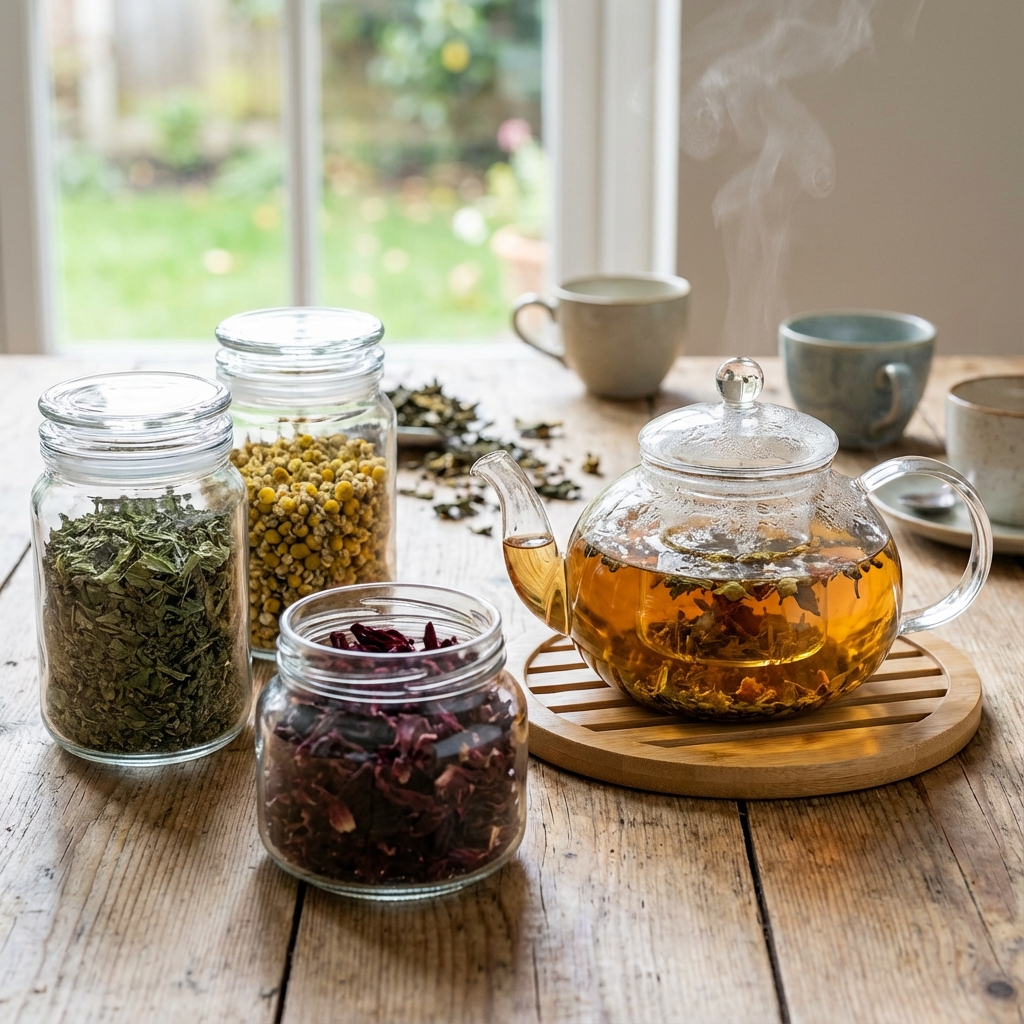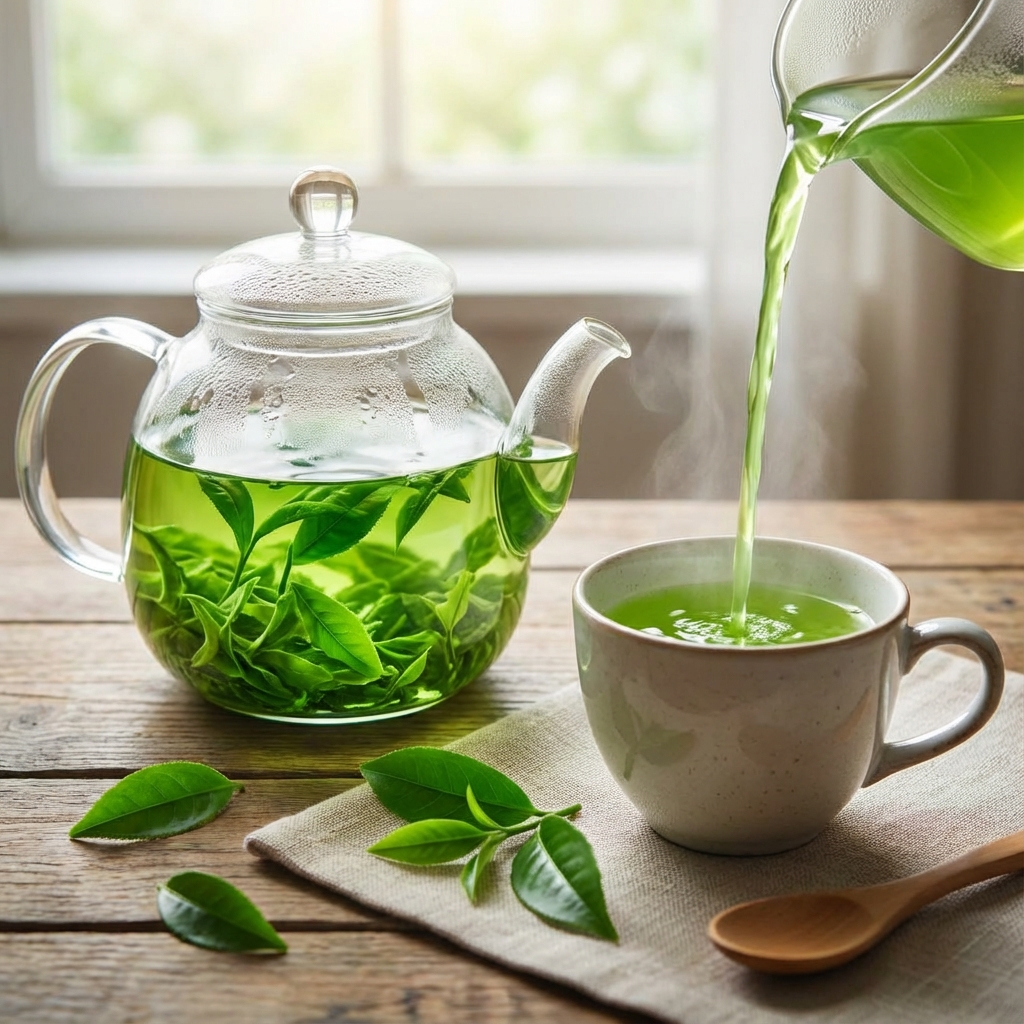White Tea Brewing Guide: The Art of Delicate Perfection

White tea is the most delicate and least processed of all teas, offering subtle sweetness, floral notes, and natural complexity. Brewing it perfectly requires a gentle touch and patience.
What Makes White Tea Special
White tea undergoes minimal processing - young tea buds and leaves are simply withered and dried. There's no rolling, oxidation, or roasting. This minimal handling preserves delicate flavors and high levels of antioxidants.
The name comes from the fine white hairs on unopened buds, giving dried tea a silvery appearance. The result is a tea with subtle sweetness, light body, and naturally sweet finish.
The Perfect White Tea Brewing
White tea is forgiving with timing but sensitive to temperature:
- Heat water to 160-185°F (70-85°C) - Lower than green tea! Let boiling water cool for 5-7 minutes
- Use 1-2 teaspoons per 8 oz of water - White tea is light; use more leaves than other teas
- Steep for 4-7 minutes - Longer than you'd expect for such a delicate tea
- Multiple steeps are encouraged - Quality white tea can steep 3-5 times
Why Lower Temperature?
White tea's delicate leaves burn easily. Water that's too hot destroys subtle flavors and creates unwanted bitterness. The low temperature allows slow, gentle extraction of sweet, floral notes.
Think of it like this: white tea whispers its flavors rather than shouting them. Hot water would overwhelm the conversation.
Popular White Tea Varieties
Different white teas have distinct brewing needs:
- Silver Needle (Bai Hao Yin Zhen): 170-180°F, 5-7 minutes - Pure buds, most delicate
- White Peony (Bai Mu Dan): 175-185°F, 4-6 minutes - Buds and leaves, more body
- Shou Mei: 180-190°F, 3-5 minutes - Larger leaves, bolder flavor
- White Tea Blends: Follow package directions, usually 175-185°F, 5 minutes
Silver Needle is the premium option - all buds, no leaves. It produces the lightest, sweetest liquor with honeyed notes.
Multiple Steeps: Where White Tea Shines
High-quality white tea excels at multiple infusions:
- First steep: 5 minutes at 175°F - Delicate, sweet, floral
- Second steep: 6 minutes at 180°F - Fuller body, more complexity
- Third steep: 7 minutes at 185°F - Deeper notes emerge
- Fourth steep: 8 minutes at 185°F - Still sweet and enjoyable
- Fifth steep: 10 minutes at 190°F - Final subtle flavors
Each steep reveals different layers. Don't judge white tea by the first cup alone!
Gong Fu Style for White Tea
Traditional Chinese gong fu brewing brings out white tea's best qualities:
- Use a gaiwan or small teapot (100-150ml)
- Fill 1/3 to 1/2 with tea leaves - Seems like a lot!
- Use 185°F water
- First steep: 30 seconds - Quick rinse, often discarded
- Subsequent steeps: 45s, 1m, 1.5m, 2m, 3m, 4m+ - Gradually increasing
This method produces 6-8 small cups of evolving flavors from the same leaves.
Common Mistakes to Avoid
- Using boiling water - Ruins delicate flavors instantly
- Not using enough tea - White tea is light; be generous with leaves
- Steeping too short - Unlike green tea, white tea needs time
- Judging quality from one steep - Always try at least 2-3 steeps
- Old or improperly stored tea - White tea stays fresh 1-2 years if stored properly
Flavor Expectations
What should you taste?
- Silver Needle: Honey, melon, cucumber, subtle sweetness
- White Peony: Light hay, floral notes, stone fruit, gentle sweetness
- Aged White Tea: Earthy, woody, fruit notes, more complexity
White tea should never taste bitter or grassy. If it does, your water was too hot or you over-steeped with high temperatures.
Health Benefits
White tea contains the highest antioxidant levels of all tea types:
- Minimal processing preserves catechins and polyphenols
- Lower caffeine than green or black tea
- Supports skin health and anti-aging
- Gentle on the stomach
Using Steep for Perfect White Tea
The Steep app makes white tea brewing effortless. Select your white tea variety, and the app provides the ideal temperature and steep time.
Track multiple steeps with different timers, and get notified on your iPhone or Apple Watch when each infusion is ready. Live Activities show your brew progress right on the Lock Screen.
Download Steep on the App Store →
Storage Tips
White tea is delicate even after drying:
- Store in airtight container away from light
- Keep away from strong smells (tea absorbs odors easily)
- Cool, dark place is ideal
- Can be aged intentionally (becomes more complex over years)
- Properly stored white tea lasts 1-2 years, aged varieties improve with time
Water Quality Matters More
Because white tea is so subtle, water quality is critical:
- Use filtered or spring water
- Avoid distilled water (too flat, no minerals)
- Chlorinated tap water will overpower delicate flavors
- Fresh water with oxygen produces brighter tea
Cold Brew White Tea
For ultimate smoothness and zero bitterness:
- Use 2-3 teaspoons per 8 oz - Generous amount
- Add cold or room temperature water
- Refrigerate for 6-8 hours - Or overnight
- Strain and enjoy - Naturally sweet, refreshing
Cold brewing extracts only the sweet, mellow flavors and completely eliminates any risk of bitterness.
Final Tips for Success
- Preheat your vessel - Rinse teapot or gaiwan with hot water first
- Don't rush - White tea rewards patience
- Experiment with temperature - Find your sweet spot between 165-185°F
- Buy quality - White tea quality varies dramatically; invest in good leaves
- Try it plain first - No milk, sugar, or additions - appreciate the subtlety
White tea is a meditation in a cup. Take your time, enjoy multiple steeps, and savor the gentle complexity.
Happy brewing!
Related Articles

8 Tea Brewing Mistakes (And How to Fix Them)
From scalding green tea to throwing away perfectly good leaves, these common mistakes are ruining your cup. Here's how to brew better tea starting today.

Herbal Tea Brewing Guide: Tisanes Done Right
Herbal teas aren't technically tea—but they deserve just as much care. Learn the ideal temperatures, steep times, and techniques for chamomile, peppermint, rooibos, and more.

The Perfect Green Tea: A Complete Brewing Guide
Master the art of brewing green tea with precise temperatures, timing, and techniques for the perfect cup every time.